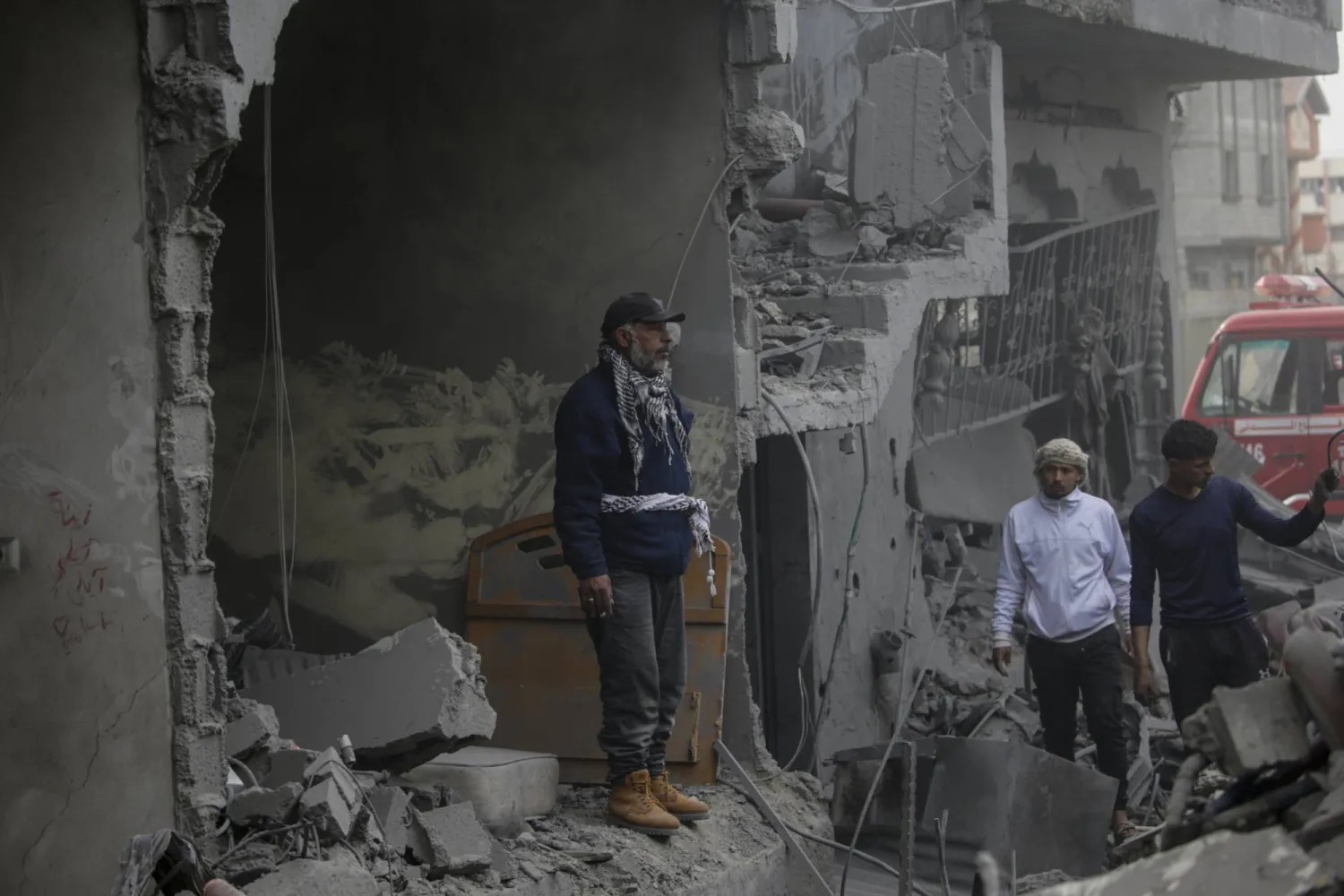Israeli Prime Minister Benjamin Netanyahu has presented his first official "day after" plan for the Gaza Strip once the war there ends, saying Israel will keep security control over all Palestinian areas and make reconstruction of Gaza dependent on its demilitarization.
The document proposes Israel would maintain security control over all land west of Jordan, including the occupied West Bank and Gaza - territories where the Palestinians hope to establish an independent state.
It was swiftly dismissed by Palestinian officials as doomed to failure.
Netanyahu presented the plan on Thursday to the security cabinet, which could still demand amendments. It was seen by Reuters on Friday.
In the long-term goals listed, Netanyahu rejects the "unilateral recognition" of a Palestinian state. He says a settlement with the Palestinians will only be achieved through direct negotiations between the two sides - without naming who the Palestinian party would be.
In Gaza, Netanyahu outlines demilitarization and deradicalization as goals to be achieved in the medium term. He does not elaborate on when that intermediary stage would begin or how long it would last. But he conditions the rehabilitation of the Gaza Strip, much of which has been laid to waste by Israel's offensive, on its complete demilitarization.
Netanyahu proposes Israel have a presence on the Gaza-Egypt border in the south of the enclave and cooperates with Egypt and the United States in that area to prevent smuggling attempts, including at the Rafah crossing.
To replace Hamas rule in Gaza while maintaining public order, Netanyahu suggests working with local representatives "who are not affiliated with terrorist countries or groups and are not financially supported by them".
He calls for shutting down the UN Palestinian refugee agency UNRWA and replacing it with other international aid groups.
"The prime minister's document of principles reflects broad public consensus over the goals of the war and for replacing Hamas rule in Gaza with a civilian alternative," a statement by the Prime Minister's office said.
The document was distributed to security cabinet members to start a discussion on the issue.
The war was triggered by a Hamas-led attack on southern Israel on Oct. 7 in which 1,200 people were killed and 253 taken hostage, according to Israeli counts.
Vowing to destroy Hamas, Israel has responded with an air and ground assault on blockaded Gaza that has killed more than 29,400 people, according to Palestinian health authorities. The offensive has displaced most of the territory's population and caused widespread hunger and disease.
The spokesman for Palestinian President Mahmoud Abbas, Nabil Abu Rudeineh, told Reuters that Netanyahu's proposal was doomed to fail, as were any Israeli plans to change the geographic and demographic realities in Gaza.
"If the world is genuinely interested in having security and stability in the region, it must end Israel's occupation of Palestinian land and recognize an independent Palestinian state with Jerusalem as its capital," he said.
The war in Gaza has revived international calls - including from Israel's main backer the United States - for the so-called two-state solution as the ultimate goal for resolving the decades long Israeli-Palestinian conflict.
Little progress has been made on achieving Palestinian statehood since the signing of the Oslo Accords in the early 1990s. Among the obstacles impeding it are expanding Israeli settlements in territories Israel captured in the 1967 Middle East war.
Most countries regard the settlements, which in many areas cut Palestinian communities off from each other, as a violation of international law. Israel claims a biblical birthright to the land and on Thursday said it would approve more than 3,000 new housing units in settlements.









